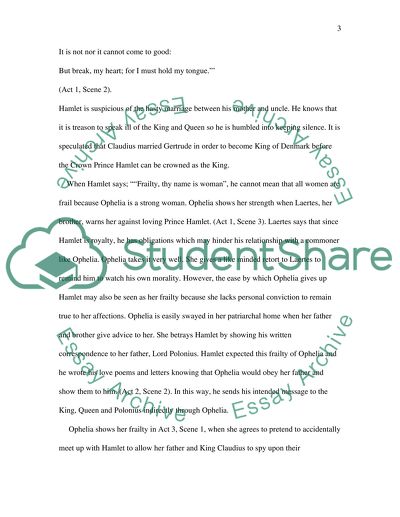Cite this document
(“Frailty in Shakespeare's Hamlet Essay Example | Topics and Well Written Essays - 2000 words”, n.d.)
Frailty in Shakespeare's Hamlet Essay Example | Topics and Well Written Essays - 2000 words. Retrieved from https://studentshare.org/literature/1540233-hamlet-essay
Frailty in Shakespeare's Hamlet Essay Example | Topics and Well Written Essays - 2000 words. Retrieved from https://studentshare.org/literature/1540233-hamlet-essay
(Frailty in Shakespeare'S Hamlet Essay Example | Topics and Well Written Essays - 2000 Words)
Frailty in Shakespeare'S Hamlet Essay Example | Topics and Well Written Essays - 2000 Words. https://studentshare.org/literature/1540233-hamlet-essay.
Frailty in Shakespeare'S Hamlet Essay Example | Topics and Well Written Essays - 2000 Words. https://studentshare.org/literature/1540233-hamlet-essay.
“Frailty in Shakespeare'S Hamlet Essay Example | Topics and Well Written Essays - 2000 Words”, n.d. https://studentshare.org/literature/1540233-hamlet-essay.


